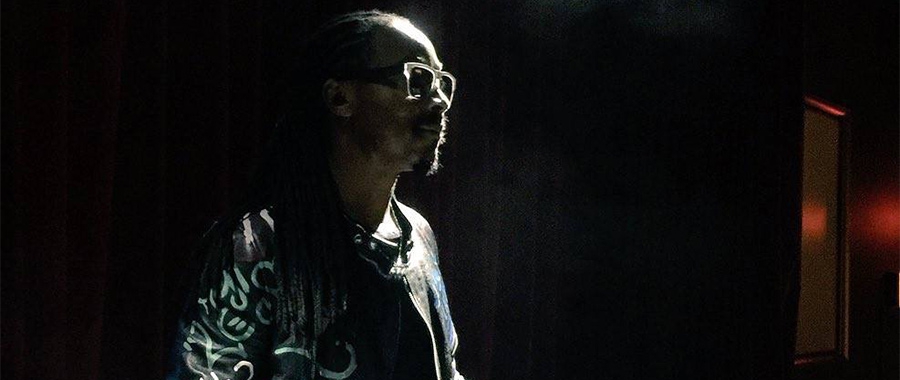The views expressed in our content reflect individual perspectives and do not represent the authoritative views of the Baha'i Faith.
If you enjoy electronic dance music, you probably know Vahid N’Dobe—a Cameroonian-born, American-based music producer—by his stage name, EDUKE.
He’s worked with Grammy winners and industry leaders, producing house and electronic dance music (EDM) for almost two decades. Running his own electronic dance music label out of Miami, Florida, EDUKE constantly finds himself on the road, sharing his music with live audiences across the United States. He’s driven by his strong sense of purpose, and his love for the Baha’i Faith, to bring music that emphasises oneness and moves the hearts of his listeners.
In this two-part interview with BahaiTeachings.org, EDUKE shares the road he’s taken on his musical journey, and why he landed on producing electronic dance music. EDUKE opens up about why he feels closest to God when he’s creating music, how meditating on the Baha’i writings helps him overcome obstacles in the creative process, and why music has the potential to uplift humanity when it’s created in the spirit of service.
Q: You predominantly compose electronic music today, but was this always the case? Tell us about your musical journey, where you started out and how you landed in the EDM world.
A: Hi! I started out composing mostly ballads using an acoustic guitar and a Casio keyboard some 20 plus years ago. Today, the majority of what I do is on computers. I was always a fan of electronic music, even though I didn’t start out there. Some of my biggest influences as a composer had their roots in Progressive House music.
Then, when my mother passed away in 2014, I went through a phase of self discovery and came to a strong realization that a lot of the things that society makes us feel are important are often not that important. We’re all born with certain gifts, and giving back to the world using those gifts is essential for any meaningful life. I started making house music after seeing some house music pioneers play at an event in Miami. All the elements were just right. It brought all kinds of people together emphasizing unity, equality and oneness. It wasn’t about the glamor and such—instead, it was very real. Diverse people came together on the dance floor simply to have a good time, showing love and respect to one another. My observations lead me to believe that house music was deeply rooted in spiritual ideals, and it became clear that house music was where I should focus my energies.
Q: You’re originally from Cameroon and relocated to Miami, Florida in 1999, after some time in Berlin, Germany. How would you say the music community and industry in Cameroon differs from that of North America?
A: Yes I am originally from the South West Province of Cameroon. I moved to the U.S in 1999 after spending almost a year studying German in Berlin. I frankly don’t see much of a difference today between the music scene in Cameroon and that of North America. Obviously the industry is more sophisticated in North America than the one in Cameroon, but the basics are still the same. The aspirations of all stakeholders are essentially the same. The internet has changed a lot of things for artists and music consumers irrespective of geographical boundaries. It is a global music scene today. When I talk with my friends who are music creators or recording artists in Cameroon it is clear to me that they face the same basic opportunities and challenges as their counterparts in the U.S. or North America.
Q: As a musician myself, I’m often inspired by the following words of Abdu’l-Baha:
Although sounds are but vibrations in the air which affect the ear’s auditory nerve, and these vibrations are but chance phenomena carried along through the air, even so, see how they move the heart. A wondrous melody is wings for the spirit, and maketh the soul to tremble for joy. – Abdu’l-Baha, Selections from the Writings of Abdu’l-Baha, p. 147.
In your experience, how have you seen your music move the hearts of your listeners and make their souls tremble for joy?
A: This to me is the ultimate goal of anyone who makes music. I have been told by some people that my music moved and inspired them … it is always a great feeling to get that kind of feedback. I think what I am more familiar with is how the music I make moves me as the creator. A lot of times when we set out to share our gifts with the world, we forget that the one who benefits the most is the giver. Inasmuch as people have remarked how my music moved them, what I am really familiar with is how the process of creating the music often takes me (the composer) to that state of blissful joy as described by Abdu’l-Baha:
Try, if thou canst, to use spiritual melodies, songs and tunes, and to bring the earthly music into harmony with the celestial melody. Then thou wilt notice what a great influence music hath and what heavenly joy and life it conferreth. Strike up such a melody and tune as to cause the nightingales of divine mysteries to be filled with joy and ecstasy. – Abdu’l-Baha, from a tablet to an individual believer.
















Comments
Sign in or create an account
Continue with Googleor